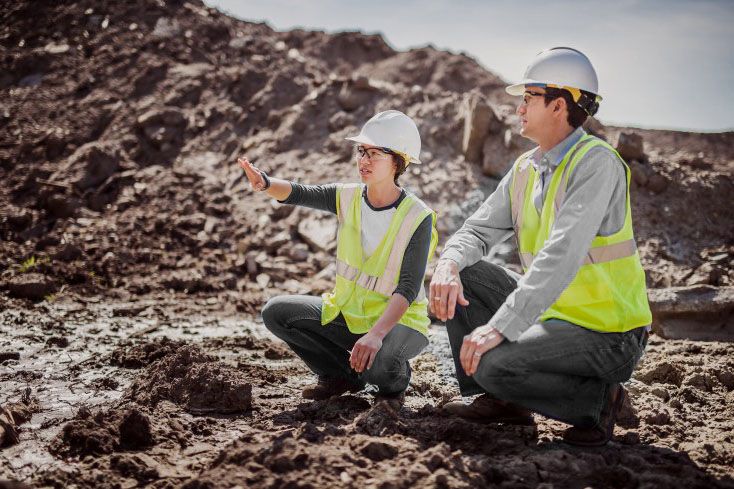In today’s business landscape, companies are increasingly expected to comply with a growing number of environmental regulations. Governments worldwide have implemented stringent policies aimed at protecting the environment, reducing pollution, and promoting sustainable practices. Navigating this complex regulatory environment can be overwhelming for many businesses, which is where environmental consultants play a crucial role environmental consultants.

Environmental consultants serve as trusted advisors, helping companies understand and meet their environmental responsibilities. In this blog post, we will explore how these experts help businesses ensure compliance, avoid penalties, and implement sustainable practices.
1. Understanding and Interpreting Regulations
Environmental regulations vary widely depending on the industry, location, and scope of a company’s operations. From the Clean Air Act and Clean Water Act in the U.S. to the EU’s REACH regulation, there are numerous national and international laws that govern how businesses must operate to minimize environmental impact.
For many businesses, deciphering these complex laws is daunting. Environmental consultants are skilled in interpreting these regulations and applying them to a company’s specific operations. They analyze how the laws apply, help the business understand their obligations, and identify the steps necessary to stay compliant.
2. Conducting Environmental Assessments
Before companies can implement any changes, they need a clear understanding of how their operations impact the environment. Environmental consultants often conduct assessments like Environmental Impact Assessments (EIAs) or Environmental Site Assessments (ESAs) to determine any potential risks.
Through thorough data collection and analysis, these assessments help businesses identify environmental hazards, such as soil or water contamination, and provide recommendations for mitigation. These assessments are often a requirement for obtaining permits and approvals for new projects or expansions.
3. Assisting with Permitting and Licensing
Obtaining the necessary environmental permits and licenses can be a time-consuming and confusing process. Many businesses must obtain permits related to emissions, waste disposal, water usage, or land use, depending on their industry.
Environmental consultants help streamline this process by ensuring that applications are filled out correctly, supporting the submission of technical documentation, and coordinating with the appropriate regulatory agencies. Their expertise can significantly reduce the risk of delays or rejections in the permitting process.
4. Mitigating Risks and Avoiding Fines
Non-compliance with environmental regulations can result in hefty fines, legal penalties, and damage to a company’s reputation. For industries with high environmental risks, such as manufacturing, construction, or energy, the stakes are particularly high.
Environmental consultants help businesses mitigate these risks by staying ahead of regulation changes and ensuring ongoing compliance. They offer proactive solutions that minimize the chances of costly violations, which can include everything from improving waste management systems to recommending clean technologies and sustainable practices.
5. Developing Sustainable Business Practices
In addition to regulatory compliance, many businesses are adopting Environmental, Social, and Governance (ESG) standards and striving to minimize their environmental footprint. Environmental consultants play an essential role in this transition by guiding companies toward more sustainable practices.
Consultants may suggest energy-efficient technologies, waste reduction strategies, water conservation measures, or greener supply chain practices. These recommendations not only help companies reduce their environmental impact but also improve their long-term sustainability and marketability.
6. Training and Education
Environmental compliance is not a one-time task but an ongoing commitment. Employees at all levels of an organization need to be aware of the company’s environmental policies and understand their role in maintaining compliance.
Environmental consultants often provide training programs to educate employees about the latest regulations, industry best practices, and the importance of sustainability. This helps foster a culture of environmental responsibility within the organization and ensures that employees are equipped to support the company’s compliance efforts.
Conclusion
Navigating the complex world of environmental regulations can be challenging, but with the expertise of environmental consultants, businesses can achieve compliance and adopt sustainable practices with confidence. These professionals offer invaluable support in understanding regulations, mitigating risks, and guiding companies toward environmentally responsible practices. By partnering with an environmental consultant, businesses can not only protect the environment but also safeguard their own financial and reputational well-being in an increasingly regulated world.
If your business is struggling to keep up with environmental regulations or looking for ways to improve its sustainability, consider working with an environmental consultant to help you navigate this ever-evolving landscape.